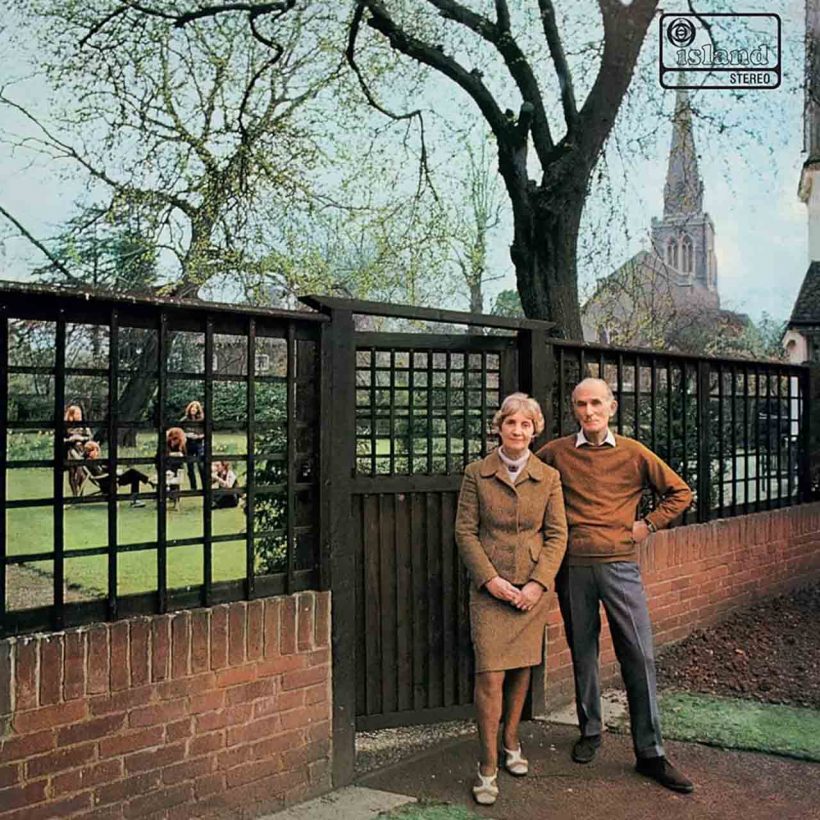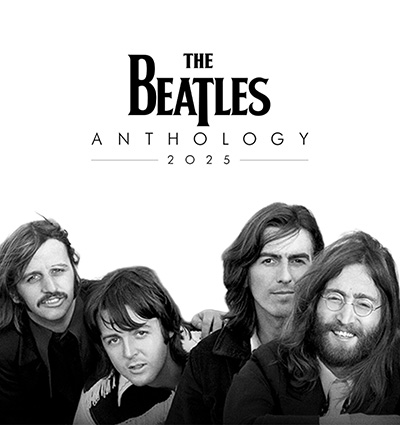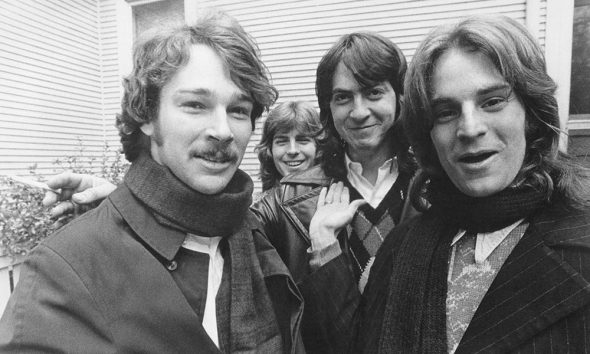‘Unhalfbricking’: How Fairport Convention Changed Folk Music Forever
The British folk-rock band’s third album was a game-changer touched by tragedy.

On its July 1969 release, Unhalfbricking, the third album from British folk-rockers Fairport Convention, should have been a cause for celebration. It was the sound of a band approaching a creative peak while finding their identity; a daring set that drew upon traditional English folk and US rock to create something new. It represented a giant step forward for songwriters Sandy Denny and Richard Thompson and saw the band welcome folk violinist Dave Swarbrick into the fold.
But two months before its release, tragedy struck. In the early hours of May 12, 1969, the band were driving back to London after a gig at Mothers in Birmingham when roadie Harvey Bramham fell asleep at the wheel. Thompson, who was sat next to the driver, noticed the van was careering towards a motorway pole and grabbed the wheel. “Harvey woke up and tried to correct the steering, but it was too late,” Thompson wrote in his 2022 memoir Beeswing, “We began to roll to the left, and as we spiralled into a long tunnel, all I could silently scream to myself was, NO, NO, NO – THIS IS NOT HAPPENING.’”
Listen to Fairport Convention’s Unhalfbricking now.
All of the passengers were thrown out of the vehicle, except for guitarist Simon Nicol, who had been suffering from a migraine and was stretched out on the floor. Martin Lamble, the 19-year-old drummer whose fluid, jazzy playing set Fairport apart from the folk crowd, and Jeannie Franklyn, a fashion designer whom Thompson had recently begun dating, suffered fatal injuries. Thompson, bassist Ashley Hutchings, Braham, and Nicol were all injured. Vocalist Sandy Denny was traveling in another van, but was understandably traumatized by the event. At a point where Fairport should have been on the verge of a great breakthrough, they seemed broken beyond repair.
Only a few months earlier, Fairport began recording Unhalfbricking with a sense of keen purpose, with Denny’s traditional folk background ever more influential. “Fairport now seemed to be on a path,” Thompson reflected in Beeswing. “Even if we could not truly articulate our destiny, the ingredients were there – playing some traditional British songs and writing our own material in a British style. All we lacked was a mission statement.”
Their second album, What We Did On Our Holidays, was released in January 1969 and, keen not to lose momentum, they convened in Sound Techniques studio in Chelsea, London, that same month. The first song recorded for Unhalfbricking was “Percy’s Song,” written by Bob Dylan for his 1963 album The Times They Are A-Changin’, but unreleased at this point.
“Dylan seemed to survive our purge of all things American,” Thompson later reflected. “Perhaps because his influences were so close to England, Ireland, and Scotland.” Fairport’s take on “Percy’s Song” gives Dylan’s poetic epic new life thanks to Denny’s emotive vocals, stirring harmonies from vocalist Ian Anderson and a hypnotic arrangement. Still, it was the last to be recorded with Anderson, as both parties felt that Fairport’s shift towards folkier pastures left the Americana-loving singer musically stranded.
After Anderson’s departure, and with every band member on the same page, Fairport got the mission statement that Thompson had been searching for. Sandy Denny had learnt the 18th century folk song “A Sailor’s Life” during her time playing the folk circuit as a solo act and played it to her bandmates backstage at a show at Southampton University in January ’69. As Denny sang the tragic tale of a young woman taking to the high seas in search of her missing lover, only to find that he is feared drowned and, struck by grief, wrecking her own boat on the rocks, the rest of the band joined in. Pleased with the results, they played it that night and weeks later were recording it at Olympic Studios, Barnes, London.
The band invited Dave Swarbrick to play on the session, reasoning that the violinist’s knowledge of traditional music would add a counterpoint to the drone-heavy, free-form arrangement. It was the first time that Swarbrick had used an electric pick-up and there was little discussion beforehand about the direction of the song. When interviewed for I’ve Always Kept A Unicorn, Mick Houghton’s biography of Sandy Denny, engineer John Wood remembered, “Richard and Sandy came in and said, ‘We really think we can only do this once.’ It was done in the old Olympic 1, a big room. We put Sandy in a vocal booth (she had an awful cold that day too) and everybody else in a big semicircle… it was very open and that was it, one take, done. No overdubs.”
The recording turned the English folk world on its head – a thrilling and convention-defying version of the song that truly took flight when Thompson and Swarbrick started trading solos. “Swarb and I were feeling each other out,” Thompson later said. “I would play a phrase and then he would play one back, as though we were having a conversation that increased in familiarity and intensity over five or six minutes.” It was a lightning in a bottle moment that changed everything for Fairport, showing they could apply the freedom of jazz and experimental music to traditional songs while using textures and tones from Indian folk music. This was an invigorating approach to folk, making it feel current, rather than the stuffy and po-faced reputation that preceded it.
Denny’s original material was just as impressive, though she wasn’t always forthcoming with her material. “You had to prise the songs out of her,” Nicol has since said. “Sandy was always reticent about us hearing them.” The supple, jazz-inspired “Autopsy” shows how versatile Fairport had become, shifting between time signatures with ease as Denny’s vocals glide above.
Unhalfbricking also featured perhaps Denny’s greatest song, the ageless “Who Knows Where The Time Goes?” Considering both the quality of the song and its preoccupation with aging, it’s staggering to learn that it was the second song Denny ever wrote – she’d demoed it back in 1966 aged just 19 and eventually recorded in ’68 with her pre-Fairport band The Strawbs. Judy Collins recorded it in August 1968 as the B-side of her US Top 10 version of Joni Mitchell’s “Both Sides Now”. “I don’t have any way to say why it’s such a great song,” Collins said in I’ve Always Kept A Unicorn. “That’s a secret that can never be revealed by me or anybody else. It’s a mystical question. Sandy’s lyrics had overtones of that Celtic folk tradition, the clarity and beauty of the story. She transcended folk in the way she sang and in the songs she wrote.”
Meanwhile, Thompson’s stately opener “Genesis Hall” and the zydeco knockabout “Cajun Woman” were evidence of his growing abilities as a writer and the band’s anything-goes approach. As were another couple of covers of then-unreleased Dylan songs – “Si Tu Dois Partir” (his 1965 track “If You Gotta Go, Go Now”, sung in French because why not?) and “Million Dollar Bash,” one of the songs Dylan and The Band had cooked up in Woodstock in the summer of 1967 that eventually became part of The Basement Tapes.
The album’s unusual title came from Denny, as Nicol remembered in an August 1969 interview with Record Mirror, “Sometimes when we get stuck in the van without petrol, we have to play games to pass the time. On this occasion, we were taking turns inventing words. Sandy came up with this one and we all remembered it because it was so strange.”
Unhalfbricking’s cover was similarly unforgettable – an image of Denny’s parents stood in front of a country garden, complete with church in the background. But the quintessentially English photograph is disrupted somewhat by the long-haired and fashionably dressed band in the background. The shoot took place outside 9B Arthur Road, Denny’s parents’ rented second floor flat in Wimbledon, south-west London – they had to ask their landlord permission to use the garden. “It was spontaneous and they were really accommodating,” Hutchings recalled. “Her mother cooked us dinner and we all sat round the table in their kitchen, which is the back cover image. It had no significance, the photo wasn’t meant to be a statement about anything, however much people tried to read something into it.”
Circumstances meant that by the time Unhalfbricking was released in July 1969, Fairport had no desire to promote the album, nor were they totally sure if they would continue as a band. Yet the label’s choice of a single, “Si Tu Dois Partir” became their only hit and the album reached No. 12 in the UK, their highest position to date. Unhalfbricking stands as a snapshot of a period of unbridled inspiration and as a lasting testimony to the drumming of Martin Lamble. Fairport’s remaining members somehow managed to collect themselves and – in a remarkable feat of fortitude and creativity – record Liege & Lief in October and November that year, another landmark album that provided a new direction for British folk music.














